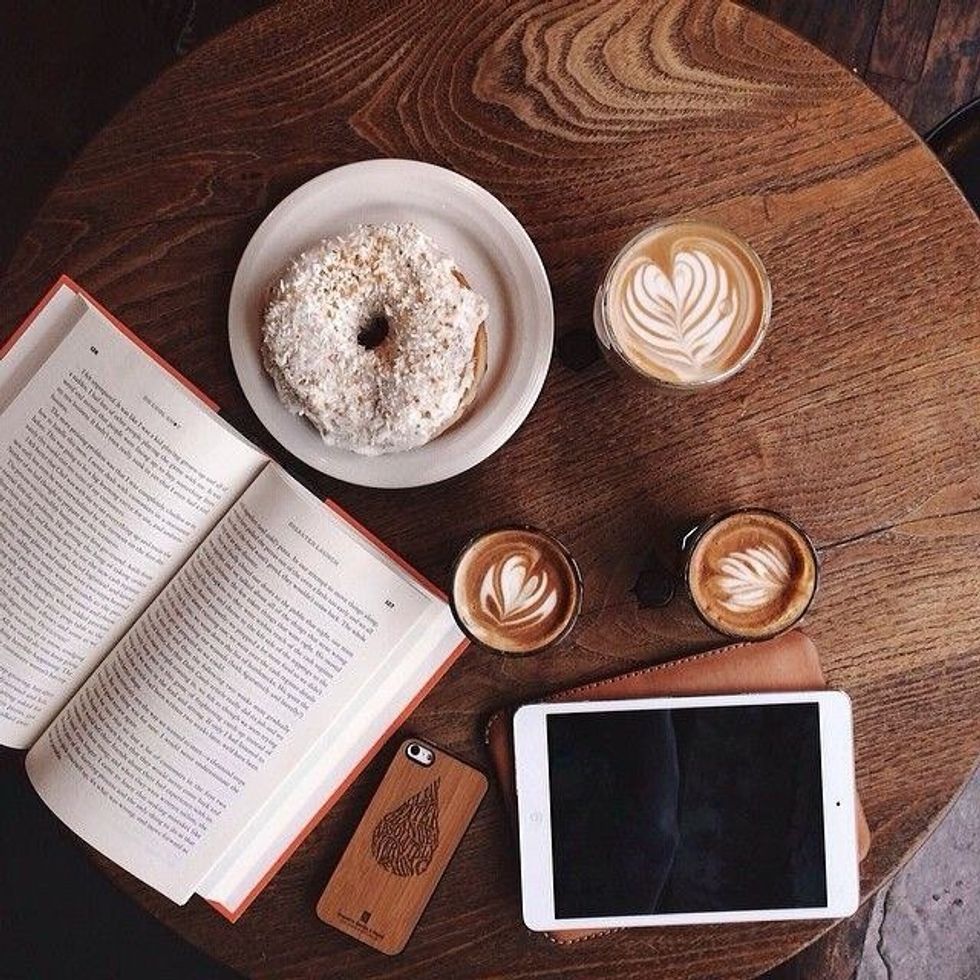These days, everything is online. Instagram has overtaken developed photos, we share articles on Twitter and Facebook, and blogs are far more accessible than newspapers. Even eBooks are taking over, far more preferable to many than the inconvenience and bulkiness of a hardcover novel. I mean, you’re reading this article online. Either it’s on your phone, your computer screen, or whatever else, it doesn’t matter. The point is what all of this means – print is dead.
At least that’s what everyone keeps telling me. It’s mostly people above the age of thirty; they’re all convinced that my generation has turned the world into a contrived online macrocosm. We’ve turned the world on its head and nearly entirely eliminated actual communication, and print has become collateral damage.
For a while, I believed this to be true. I mean, how many times a day do I scroll through my Instagram feed? How often do I fawn over profile aesthetics or scan over BuzzFeed articles? I don’t even read actual issues of Cosmo anymore; I get my fix from their Discover page on SnapChat. When I see those little boxes on sidewalks with copies of newspapers locked inside, I smile and internally quip over how sweetly quaint they are. So yeah, I used to be pretty convinced that my generation had killed any and all things genuine and material. We had transformed the world into a new dimension, one that you could only see through the lens of a good WiFi connection.
But what I’ve started to realize is that most people have it backwards. My generation isn’t killing print, we’re resuscitating it. Print started fading long before I came along; what my generation is doing is reforming it. Because yes, I love a good Insta feed and I don’t think you’ll ever see me with a newspaper in my hands, but I probably won’t be holding a Kindle, either.
I am not a Millennial, though we are both received with just about the same level of disdain; I am a member of the very underrated and frequently mocked Generation Z. I am lazy and unknowledgeable and I’m hopelessly addicted to my iPhone. Supposedly. But reality check: Generation Z-ers haven’t been around long enough to be at fault for the domination of technology. Another reality check: we’re the ones trying to separate ourselves from it. Obviously we are fairly attached to our cell phones and are easily irritated by a bad WiFi connection, but we’re also reviving a part of life and connection that died before we even got out of elementary school.
The 2000s were a time of technological innovation and magic – things developed in such a way that it made it possible for technology to be nearly omnipresent in our lives. A separation from technology today often means a separation from the world. And that’s what I grew up in. For most of my life, I have been shrouded by that kind of far-reaching technology. We all have. And I’m not saying that that’s necessarily a bad thing – I’m saying that it’s changed the way we think. It’s driven us to crave something other than what we’ve had – it’s driven us to recreate a history that we didn’t experience.
The past couple of years have seen a resurgence in all things old-school. We have turntables and record collections to rival even that of Peyton Sawyer. We take polaroids and pin them to our dorm walls where they act as authentic reminders of a hundred different good days. We shop at used book stores and sit at coffee shops with pretty lattes and scribble in the margins of our used books and let that simple act make us feel real. And maybe a picture of that pretty latte will make it to our Instagram accounts, but that’s not the point. The point is that my generation is making a huge effort to reach back to a time in which people could connect to each other and the streets they walked and the things they saw; we’re reaching back and we’re reaching forward at the same time. We are potentially the most socially progressive and accepting generation the world’s seen to date, and by taking the best of the past and combining it with the kindness and love that we hope to impress upon our futures, we are in effect establishing the best possible present that we could exist in.
The world isn’t in the best shape. It’s just not. There’s a lot of hate and cruelty, and sincerity and honest love feel incredibly rare. But my generation, the generation that gets so much hate for being dull and unambitious and obsessed with our technology – we’re the ones that are instigating change. We’re the ones that are keeping print alive.
The reemergence of love and the reemergence of realness are arriving hand-in-hand. And both are better this time around, because we’re using technology as an advocate for both. So when people tell say that print is dead, I smile at them, and I internally quip over how sweetly quaint they are. Because they, very simply, are wrong. We are instigating a revival, and it’s not just a whim or a short-lived trend. It’s a pursuit of something that we feel deprived of – it’s a pursuit of authenticity, and of love, and of a world holding more good than we’ve ever seen it carry.
Print is not dead. It’s just new. We’re on a mission to make it better. We’re on a mission to bring it back to life.






















